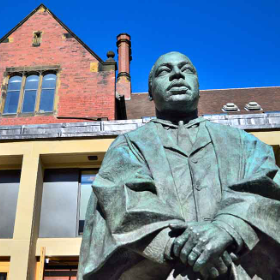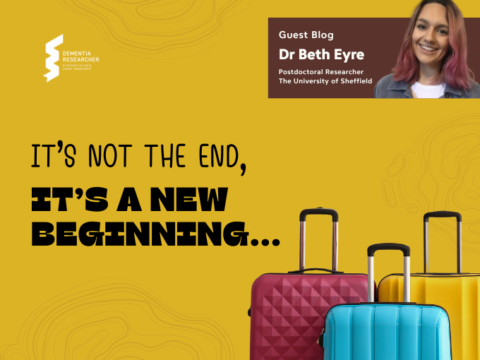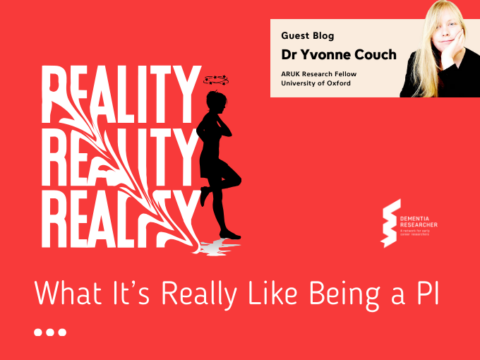I first got involved with EDI in 2021. In this blog I wanted to give a personal and practical account of what working in EDI means, why I got involved with it, the practicalities of what we do, the benefits and challenges for both research and in a research career. I hope this might inspire you to consider doing the same, because… it’s important.
What is EDI?
EDI can mean many things to different people. In simple terms I see it as promoting an environment of fairness and equal opportunity whatever your background or circumstances. Helping to empower people from diverse mind-sets and cultures getting involved in both research and research careers. Finally, making everyone feel welcome in research and removing barriers and biases that get in peoples way. The core of our EDI work is working to reduce discrimination of those of protected characteristics under The Equality Act 2010:
- Age
- Disability
- Gender reassignment
- Marriage and civil partnership
- Pregnancy and maternity
- Race
- Religion or belief
- Sex
- Sexual orientation
For me personally I see my role as an EDI leader simply in making working in research a happier environment for everyone, whoever you are.
Why I got involved
There are 3 main reasons why I got involved in EDI. If I’m really honest I wanted to get some experience to put on my CV, secondly it was clear during the pandemic that when we did return to working on campus it would be a very different workplace and in some ways it was the best time to get involved as there was an opportunity to make real impact. The third reason is my personal experiences of discrimination. As a gay man I fall into one of those protected characteristics. I have also experienced difficulty over the years in higher education and working in research as someone coming from a very deprived area in the north east and having struggles with mental health issues.
Research can be quite a nebulous and highly competitive career. I’ve found it can be difficult to chart a path for yourself, especially if you have no experience from family or your community working in a relatable field. I have found this can be disconcerting, especially in the early years. The path into research itself can be very demanding and having support is essential. Although my family have always been supportive of me it was always difficult when no one in my family really knew what a PhD was, let alone what doing epidemiology research day to day practically looked like. Until about 2 years into my PhD I found out most of my family thought I was training to be a dementia nurse! This has always solidified in my mind that the way we do research needs to be more supportive of making people from all backgrounds feel welcome and supported.
Being gay I’ve also had my fair share of discrimination. For many years the way I’ve dealt with this by pretending homophobia or discrimination occurs. However, in recent years I have come to realise that although discrimination is rarely as acute as school yard homophobic bullying, it doesn’t mean it doesn’t persist in more subtle ways. Similar to this the more I’ve worked in research the more I’ve come to realise that many of my fellow LGBT researchers carry that discrimination from the high school, college, undergraduate into work life whether facing direct homophobia in work or not.
Indeed in many ways my personal view is that the world is becoming a less welcoming place for many people of protected characteristics. Constant toxic discourse around race and immigration, heated arguments around gender and LGBT+ rights and EDI priorities disregarded as “woke” can be frankly scary. Although we can’t control this in our workplaces, I think we have to be aware that we don’t work in a vacuum. I had a very real experience of this where I was assaulted while walking down the street for being gay, and to say that didn’t have a profound effect on me at work would be disingenuous.
I write these things because I think we have to be aware of these issues, and it’s these issues which make EDI fundamental to how we work and do research. What I don’t want is to say that you can only get involved if you have faced discrimination, or that you won’t gain anything. The other reason I joined was for quite selfish reasons, I knew it was an issue becoming more important to research funding and I wanted to get experience of leadership in something that would look good on my CV.

A study of 600 business decisions made by 200 teams found that when diverse teams made a business decision, they outperformed individuals 87% of the time and were shown to make decisions faster than individuals.
What we actually do in our EDI group.
No doubt EDI groups do things very differently across research institutes. In my case I am a deputy leader of an EDI committee representing staff and post-graduate students within the Newcastle University Population Health Sciences Institute. I have been involved with the committee since it was set up, and in the early days our main objectives were to identify areas where as an institute we could be more inclusive and to promote to work of our committee. Some of these are long term objectives, for example we attend regular meetings with our research executive meetings to make sure EDI is included in strategic decision making in institute policy. One way we were able to make an impact in this was organising an event where research could tell their “COVID-19 stories”, taking what we learned about how they were affected by the pandemic and anxieties about returning to campus. We were then able to make sure these views were taken into account when return to campus planning was being made, making adjustments for example parents who had changed their child care arrangements, vulnerable staff who rely on public transport, and on the flip side often younger ECR’s who were more keen to return and felt they were missing out on the face-to-face engagement at work.
We have also been able to run a number of successful campaigns. Something I have taken a personal lead one through my love of books has been to develop a EDI book club, reviewing and suggesting novels, memoirs, non-fiction and children books covering topics such as race, LGBT issues, black history and religion to share the values of and ideas of EDI in a more interesting way than reading research articles. We are currently engaged in the de-colonising the curriculum campaign to make our taught courses more inclusive of non-white perspectives. Our most recent project has been to help with period poverty during the cost of living crisis, getting funds to stock free sanitary products for anyone who needs them in all of our work and teaching spaces.
And finally we run a EDI blog giving researchers the opportunity to share their methods of incorporating EDI into their research or their perspectives of working in research from the point of people with protected characteristics.
Benefits for Research and Researchers
In some cases it is clearer cut why there are benefits to research from a population health perspective. As a dementia epidemiologist it is fundamental to my research of population level dementia risk that the populations we study should be truly representative and we know that those with protected characteristics among other things are the least likely to participate in research. I believe having a thoughtful approach to EDI has a benefit to all our research in dementia whether clinical or biomedical. It can help us write and disseminate our research in a way that reaches people it may not have before and gives our research the benefit of perspective, it is easy to slip into thinking about people with dementia as a homogenous group especially if the majority of people participating are white middle class.
I think taking part in EDI has huge benefits as a researcher. It has helped me become more aware of the people I work with and the different challenges we all face. I have also been forced to confront some of my own thinking. A diverse workforce of researchers inevitably leads to a more diverse range of perspective making research a more creative space. I would argue although academia can be welcoming in many ways, there remains a big class and culture divide for people from disadvantaged backgrounds.
There are also benefits in terms of your career. EDI is becoming an ever bigger priority for research bodies, having practical experience of working on EDI is a huge benefit. When I was asked to play a leadership role I was terrified! In hindsight EDI is a perfect area to gain experience of leadership, again something at looks good on your CV. Working with colleagues in executive roles has also help me make more connections with senior staff around the university, it’s always good to have more people know who you are. Finally the greatest benefit in my opinion is the opportunity to be more creative and get instant gratification! One of the challenges I find with research is we are always thinking in the long term, working months and years gathering data for papers, long drawn out peer review. I have highly valued being able to identify a project and get something done that makes a real change for people straight away, the period poverty work we have done being a great example.
Challenges
It would be a lie to say that everything about doing EDI work is perfect. The most significant is time pressure. Ask anyone in academia and they will tell you they have a full diary, and honestly there are times I struggle with juggling my own research with other commitments such as EDI. I would say if you really don’t have any flexibility to do it, don’t overload yourself! For me I am lucky that we I have a great Co-deputy. Inevitably with EDI work every now and then you may have to work on issues that are highly sensitive and that can be difficult, especially when it’s something that you can’t fully relate to. For me I can talk a lot about LGBT issues, however often when talking about race, disability or issues faced by women I can sometimes feel like I have little to offer. Saying that though the ability to know what you don’t know and being confident to listen and learn is a valuable skill in itself!
Final thoughts
Although their challenges my view remains unchanged that being involved in EDI makes for better research and better researchers, whether that be in dementia or otherwise. It’s a great for your CV and really gives you a chance to be creative in problem solving and make things better for people in real time.
I want to acknowledge the excellent work of Dr Nicola Heslehurst our committee leader and Fiona Graham my Co-deputy leader and all who have worked on the NUPSHI EDI committee.

Dr Connor Richardson
Author
Dr Connor Richardson is a Neuro-epidemiology Research Associate in the Newcastle University Population Health Sciences Institute. Connor is the research statistician for the Cognitive Function and Ageing studies (CFAS) multi-centre population cohort. His research interest lies in using advanced statistical modelling and machine learning to measure dementia risk. Connor blogs about his research, Equality, Diversity and Inclusion and sometimes his Pomapoo’s.

 Print This Post
Print This Post




